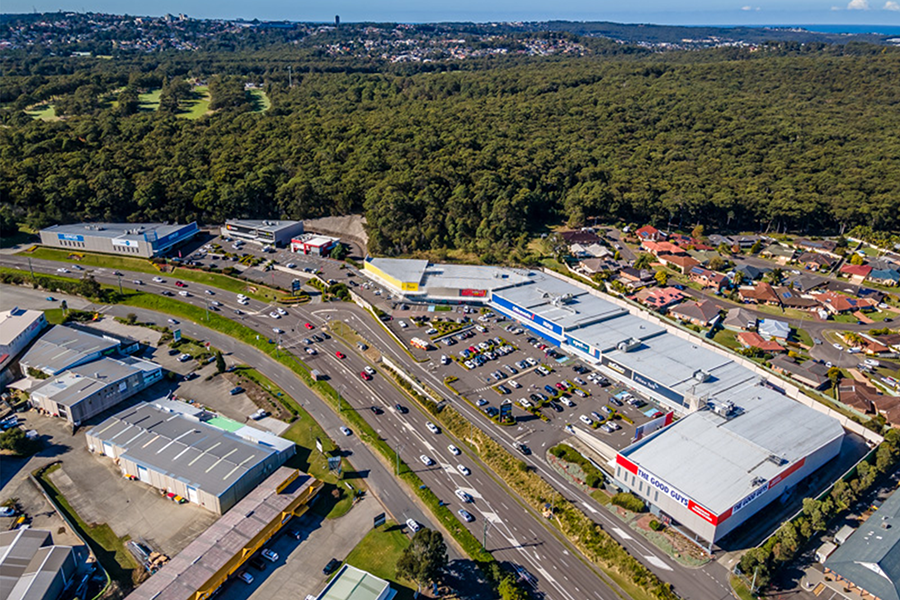The GPT Group today released its operational update for the March 2020 quarter. In response to the current operating environment brought on by COVID-19, the Group has implemented a variety of initiatives to reduce or defer spending on non-essential and discretionary items across the business. The Group has taken the decision to defer the commencement of both the Rouse Hill retail expansion and the Melbourne Central office and retail development until such time as market conditions are more supportive. These initiatives will help ensure that the Group remains in a strong financial position and is well positioned for the recovery phase post COVID-19.
While the Group commenced 2020 with solid momentum, the quarter has been overshadowed by the unprecedented measures implemented in response to the COVID-19 pandemic. This has required the Group to take swift action to protect its people and support its customers. Social distancing measures have resulted in a significant reduction in foot traffic and sales turnover in its shopping centres and many retailers have temporarily closed their stores.
At the beginning of the year and prior to the impact of the COVID-19 restrictions, retail sales showed positive momentum with monthly Combined Specialty sales up 3.0% in January and up 4.9% in February (year on year). In mid-March, the introduction of measures to contain the spread of the coronavirus, resulted in lower levels of foot traffic and a reduction in the number of stores trading, which contributed significantly to declines in monthly Combined Specialty sales of 27.3% and Total Centre monthly sales of 21.3%. Supermarkets, unsurprisingly, were the strongest performer in March, with monthly sales up 19.7%.

Rouse Hill Town Centre masterplan
Following the end of the quarter, the National Cabinet announced a new commercial tenancy Code of Conduct (Code). The Code aims to help small and medium enterprise (SME) tenants with a turnover of less than $50 million, that qualify for the Federal Government’s JobKeeper program, and are suffering financial stress or hardship. The Code sets out principles to guide discussions between commercial landlords and SME tenants for temporary changes to leasing arrangements during the COVID-19 period and is to be legislated and regulated by the States and Territories.
Based on an analysis of the Group’s portfolio, SME tenants are estimated to account for 36% (including franchisees) of its Retail portfolio net income (with Office 21% and logistics 14%).
The application of the Code requires GPT to engage with each of its SME tenants and provide cashflow support in a fair and proportionate manner during the COVID-19 period. Importantly, the Code allows the Group to negotiate commercial outcomes on a case by case basis for those SME’s most impacted. This process has commenced but will take some time to conclude given the complexity of the application of the code and the number of tenants involved. GPT is also engaging with its non-SME tenants who have sought assistance but are not governed by the Code.
GPT’s CEO and Managing Director, Bob Johnston, said: “We are engaging with our tenants in a proactive and considered way so that we can all emerge from the pandemic in a position to grow our respective businesses. The application of the Code provides both landlords and tenants a clear pathway to negotiate a mutually beneficial outcome.”

An artist’s impression of the Melbourne Central development
In the Funds Management division, the GPT Wholesale Office Fund has received binding commitments of approximately $289 million of new capital, from a combination of new and existing domestic and foreign investors, for its capital raising which closes on 18 May.
Most of the Group’s office tenants have implemented work from home arrangements.
“The health and wellbeing of our people, our customers and the public is our first priority and our teams continue to work closely with our tenants to adapt to the current circumstances and to ensure our assets operate safely and effectively.” said Johnston.
The Group remains in a strong financial position with low gearing, limited debt maturities and significant available liquidity, which will provide the flexibility to manage through the current challenging operating environment.





















